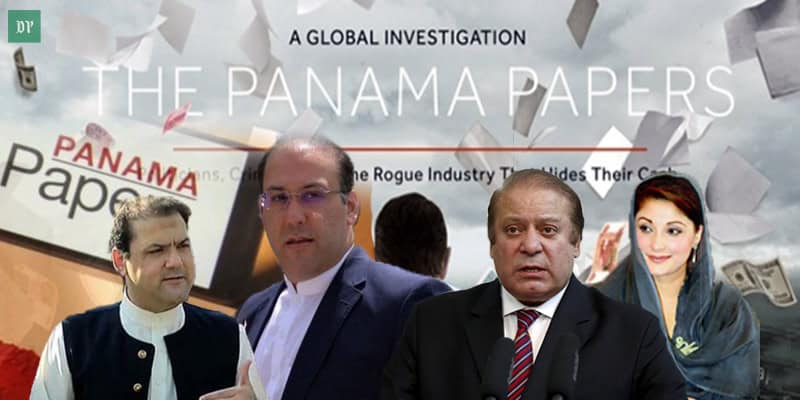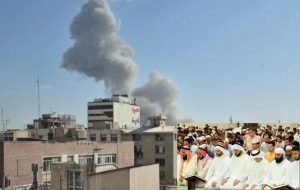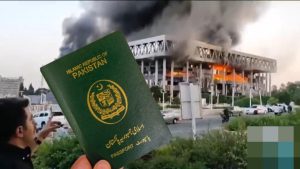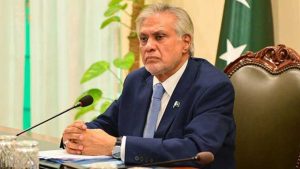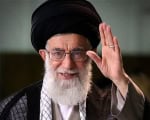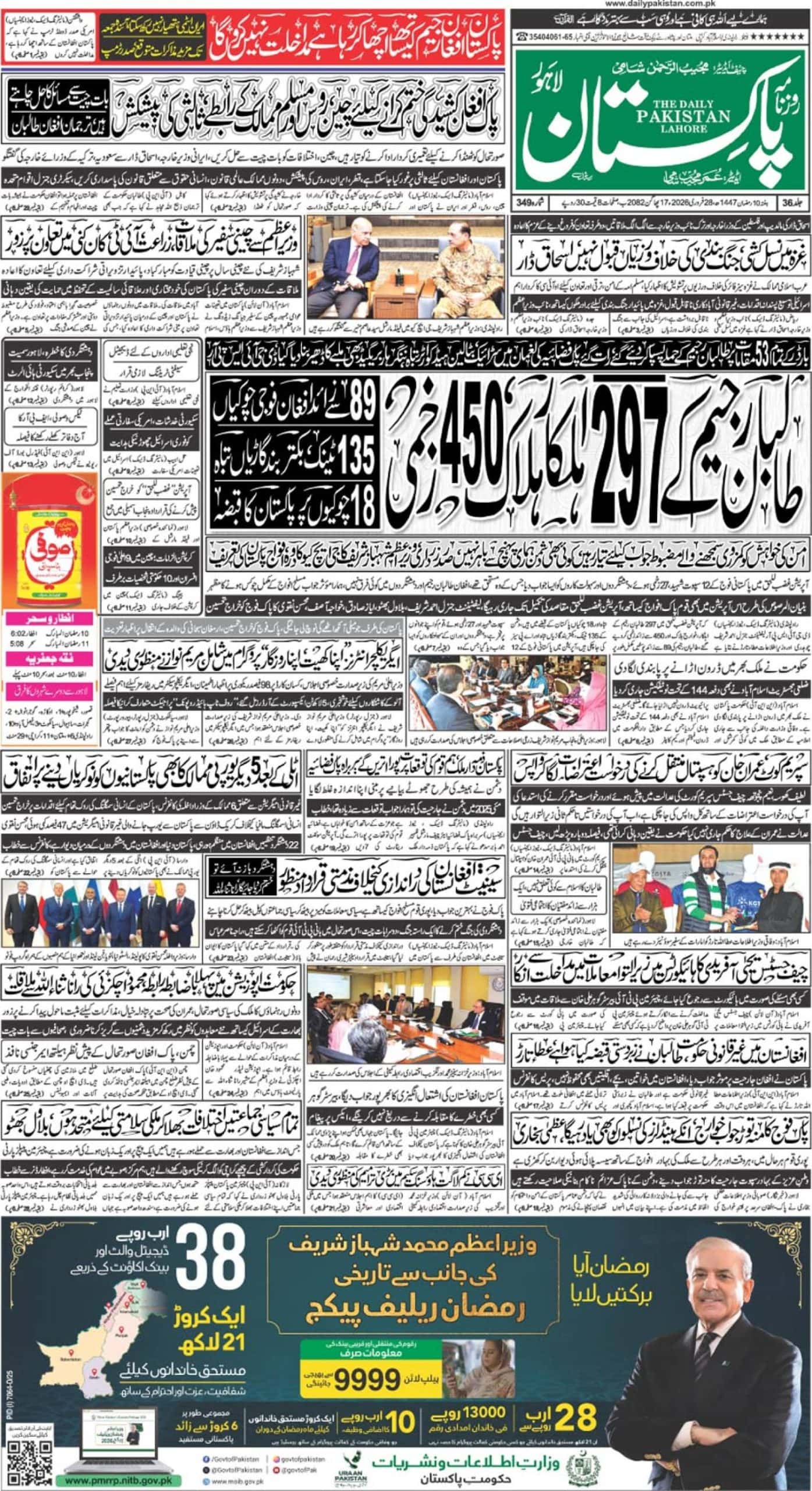ISLAMABAD – On the third consecutive hearing following the submission of the final report by the Panama case Joint Investigation Team (JIT), the implementing bench observed that money trail for London flats was still not being provided by the respondent.
A three-member bench, headed by Justice Ejaz Afzal Khan, comprising Justice Sheikh Azmat Saeed and Justice Ijazul Ahsan heard the reservations presented by senior counsel Khawaja Harris.
Counsel for Finance Minister Ishaq Dar also submitted his arguments raising objections to the JIT report.
After hearing the arguments, the court adjourned the case till tomorrow.
Lawyer for children of Prime Minister Nawaz Sharif would present his arguments before the court tomorrow.
PM’s Counsel
The prime minister submitted returns regarding his income and assets, Harris said, adding that the premier did not own any assets except what had been declared.
According to rules of NAB, a husband and a father could not be held responsible for the assets owned by children and spouse, Harris asserted, besides reading the statement of Nawaz Sharif given to the JIT.
During JIT’s investigation, the premier was not inquired about his assets, which shows that investigation team had nothing incriminating about his assets.
Harris stated that relatives of the PM did not possess any Benami assets and they did not hide their assets. He referred to 5A of Section 9 of the NAB Ordinance.
A person, who takes benefit from assets of any linked person, cannot be a suspect, Harris said.
Justice Azmat replied that the law described the source of income, a person who possesses the assets.
Justice Ijazul Ahsan said that the person, who is using the assets, could be Benamidar.
“Benamidar is a person in whose name the Benami property is held or transferred, and a beneficial owner of the person for whose benefit the property is being held by the Benamidar.”
Justice Ejaz Afzal observed that they are listening for months that all things are clear except London properties.
He said that the case was related to the assets owned by them since 1993.
Khawaja Harris said that the prime minister has no direct links with London flats, adding that the premier is answerable if he owns the property in London. The flats are possessed by children of the premier, he argued.
The questions are regarding the money trail, sources of funds and when the London flats were purchased, Justice Ijaz said, adding that the prime minister was to answer these queries.
Justice Ijaz remarked the bench did not receive an answer regarding the transaction of money to London from Saudi Arabia and Qatar to purchase the properties.
The prime minister has not been called a benamidar in the JIT report, Harris argued, adding that the flats, according to the JIT, are owned by entire Sharif family.
Justice Azmat Saeed observed that no one was telling about owners of the London properties despite asking repeatedly.
Justice Azmat further said a son of PM claims that the property was purchased, while another said it was inherited.
When Harris said that he wanted to talk about Volume 4 of the JIT report, Justice Ijazul Ahsan asked the counsel to be careful from Volume 4 and 10 of the report as they contain dangerous documents, adding that trust deed has been discussed in 4 and some results have been derived by the JIT.
Ishaq Dar’s Counsel
After a recess, Finance Minister Ishaq Dar’s counsel Tariq Hassan started presenting his arguments. He said that his client has not been made an accused in the petition filed by Imran Khan.
Pointing at the JIT report, he said that Dar has been wrongly blamed for not filing his tax returns for the year 2001-02, adding that such findings could lead to a trial against the minister.
To that, Justice Ijazul Ahsan said that the respondent will be given complete chance to defend the allegation if case is referred to trial.
Justice Azmat highlighting Dar’s confessional statemennt said that he was suspect in Hudaibiya Papers Mills case.
The counsel replied that the minister gave the statement under pressure and was rejected by him later.
On an argument regarding shutting of the case by the NAB, Justice Ejaz remarked that didn’t the court order the department head to reopen the case.
The bench also directed the counsel to provide additional documents in favour of his argument.
“Had the JIT examined my documents they would have realised my client’s assets actually decreased over the years,” commented Hassan.
Responding to an argument, Justice Ijaz said that assests of Dar increased from Rs9 million in 1993 to Rs854 million in 2000.
Second Day Hearing
Opening the arguments on Tuesday, Khawaja Harris challenging the mandate of the JIT highlighted that the apex court gave 13 questions for probing but it submitted answers of 15 questions by exceeding its mandate.
Haris recalling the April 20 judgement said that there were no orders for reopening any case against the prime minister.
To which, Justice Azmat Saeed remarked whether investigating the additional assets of the family did not come under the domain of the JIT.
Terming the money trail of London flats a mystery, Justice Ijazul Ahsan said that several issues were related to the original 13 questions of the court.
The main issue is to probe the London money trail, observed Justice Ijaz.
Justice Ejaz Afzal commented that it was up to the court to approve the suggestion of the JIT or not.
Addressing the respondent, Justice Ijaz also asked the counsel that you could say anything in your defence but you did not.
Justice Ijaz also observed that the premier and his sons did not want to tell anything to the investigation team, adding that the prime minister and his children were given chances to defend the allegations against them.
Giving a verdict is not the authority of the JIT, Harris said. Responding to it, Justice Azmat said that the investigation team has made suggestions, while the decision will be made by the court.
Harris asserted that PM Nawaz did not own any offshore company, besides claiming the company, FZE Capital in Dubai, was owned by Hassan Nawaz.
To which, the bench asked that whether prime minister did not have an aqama, adding that whether the prime minister is not the father of Hassan.
After the break, Harris resumed his arguments raising objections to the JIT report.
Referring to documents collected by the JIT, Harris said that these should not be considered authentic as these were not verified by Pakistani embassy, a process required for Mutual Legal Assistance.
Justice Ejaz replied that should we not accept the documents provided to the JIT through MLA.
Justice Ijaz remarked that respondents claimed that a money trail exist but no one provided it to the investigation team.
Justice Ejaz remarked that the case could be taken further by the bench or an accountability court as there are only these two ways.
Justice Ijazul Ahsan said that there was no need to get verification from the embassy for original documents.
Regarding London properties, Justice Ijaz said that it was the responsibility of the prime minister to provide record regarding the source of funds for purchasing the properties. The decision regarding disqualification of the premier will be made after pursuing the complete material, he remarked further.
First Day Hearing
During first day proceedings on Monday, Pakistan Tehreek-i-Insaf’s counsel Naeem Bukhari, Jamat e Islami’s Shaukat and Awami Muslim League (AML) chief Sheikh Rashid presented their arguments before the court regarding the JIT report.
All the petitioners pleaded the apex court to disqualify Prime Minister Nawaz Sharif on the basis of findings dig out by the investigation team during given time period. Naeem Bukhari also asked the court to summon the prime minister for cross-questioning.
JIT Report
The JIT submitted its final report to the apex court on July 10 after a 60-day long deep investigation highlighting that the assets owned by the prime minister and his children are beyond their declared source of income.
It also stated that the ruling family could not give money trail for its London apartments.
Panama probe
The Supreme Court decided to begin investigating the Sharif family in November last year after the main political parties failed to agree on a committee to probe the April 2016 Panama Papers leaks, and Pakistan Tehreek-e-Insaf Chairman Imran Khan threatened mass protests and to ‘shut down Islamabad’ in protest on November 2.
On April 20, the five-member Supreme Court bench gave its verdict in the case with the judgment split 3-2 in favour of a further probe against the premier’s family wealth. The other two judges had ruled that sufficient evidence was available for the prime minister to be de-seated.
The JIT – formed on May 6 – was given 60 days to complete its probe into the Sharif family’s international financial dealings and submit its report to the Supreme Court’s special implementation bench overseeing its proceedings.
The JIT team is headed by Federal Investigation Agency Additional Director Wajid Zia, and includes members from Inter-Services Intelligence, Military Intelligence, SECP, State Bank of Pakistan and NAB.

